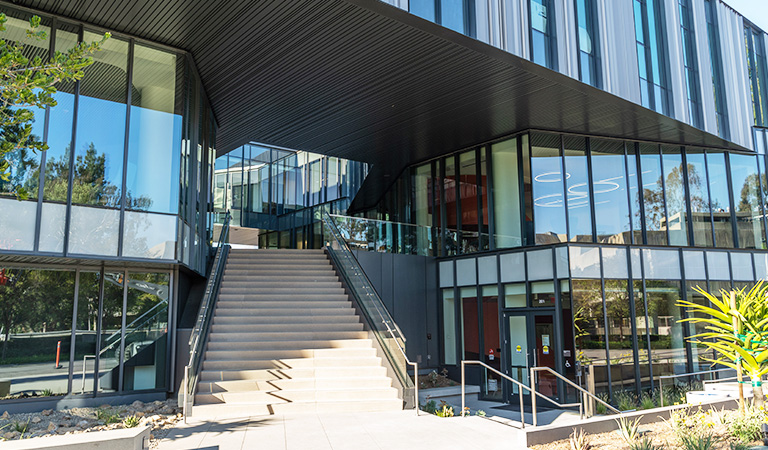CS Undergraduate Consortium Strengthens Diversity Pipeline
November 28, 2022
Three years ago, Professor Jim Boerkoel embarked on a project to address the challenge of building a cohort of artificial intelligence (AI) researchers that represents the diversity of broader society.
“Attracting and supporting undergraduates at highly competitive technical conferences is both essential and challenging,” says Boerkoel, Harvey Mudd College computer science professor and department chair, “mainly because such venues offer limited opportunities for undergraduates, leaving students questioning whether their identities and passions are relevant, valued and if they belong.”
With funding from the National Science Foundation, Boerkoel and his colleague, Mehmet Ergezer of the Wentworth Institute of Technology, developed the Undergraduate Consortium (UC), a one-day consortium and full travel scholarships for undergraduates attending the 2020 and 2021 Association for the Advancement of Artificial Intelligence (AAAI) Conferences on Artificial Intelligence. The UC was designed to broaden the AI research community by recruiting students, particularly those from historically marginalized groups, and supporting them with mentorship, advising and networking as an accelerator toward graduate school, AI research and their scientific identity.
Ahead of the UC program entering its fourth year this spring, follow-up research by Boerkoel and Ergezer has been accepted for publication by SIGCSE 2023, the technical symposium on computer science education. The paper describes the evidence-based practices that informed the UC program’s design. It also presents the program design, evaluation and results from its first years and offers lessons learned and resources for implementing a UC at other STEAM conferences.
“From its inception, the vision was to build the UC model to expand its reach by becoming a self-sustaining part of the AAAI conference and to replicate it at other computing and STEAM venues,” says Boerkoel, noting that they’ve made significant strides in accomplishing both.
Boerkoel and Ergezer’s analysis of UC suggests that the UC is helping to increase students’ self-efficacy, sense of belonging, computing identity, scientific capital and professional skills in a way that persists across demographic groups. Feedback from program participants has been encouraging. One participant stated, “I have a feeling that attending this conference and consortium was one of the most impactful things I could have done for my future research career.” Another wrote, “I think my most important takeaway from the UC was that I might have a future pursuing graduate education in AI/computer science and the importance of that experience in general.”
Boerkoel says the UC is unique in that it fills a critical gap in the current computing research pipeline. “By partnering with AAAI, the UC provides students a scaffolded next step in their transition to graduate research by attending a top international AI research conference and giving broad exposure to and direct engagement with the latest ideas and top researchers in AI. The UC is the first known venue that offers specific programming to equip undergraduates to navigate the academic conference experience as full members of the research community by cultivating a safe environment for practicing and refining skills and providing tools for a successful graduate research career.”
As AI systems play an increasing role in making decisions that impact everyone in society, Boerkoel sees the necessity of having AI designers who represent everyone in society. “The individuals designing and researching these systems often are not representative of the people they serve,” he says. “A lack of diversity can lead to encoding implicit biases, leading to technology designed to work for only a privileged portion of the population. Increasing diversity in the AI research and design pipeline mitigates the chances that the privilege and context of any one group become reified in AI systems by considering and empowering a broader, more representative set of experiences.”
